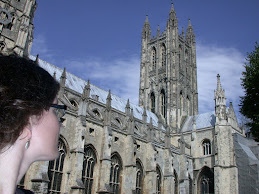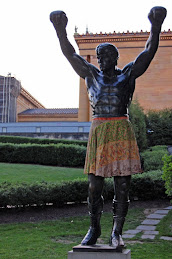I have got a few more books to add to my list of possibilities. And a few reactions.
A book about the formation of the government of the United States called American Creation: Triumphs and Tragedies at the Founding of the Republic. It is written by Joseph J. Ellis. From the review I read in the New York Times the books seems to be discussion of how at certain pivotal moments in history, the US constitution frames the boundaries and fences of government that vitriolic debate can take place without the destruction of the country and the peace. In other words, that the balance between the 3 branches means we can discuss explosive issues because no matter how strongly any one side feels, change will happen so slowly that it can be corrected or reversed.
From reading this review, I am intrigued because it seems to capture my sense of why our country has not devolved during the current presidential administration.
The two other books are about Latin: by Harry Mount, Carpe Diem: Put a Little Latin into Your Life and by Nicholas Ostler, Ad Infinitum: A Biography of Latin. The first one offers itself as a review of Latin grammar and vocabulary to help you remember enough of both to start reading Latin again. The second is a history of the language and its evolution. The second book sounds more appealing as it traces the language from pre-historical Rome to twenty-first century internet.
Another book is translated from the French and is about how to fake having read a book. The author is Pierre Bayard and the translator is Jeffrey Mehlman. The title is How to talk about Books you Haven't Read. For me as an English teacher the entire idea of this book is sacreligious, but on the other hand I know my students and even my own children don't see reading the way I did and do. For me reading transported me beyond the limitations of my locale and into a greater environment. Now they achieve the same action with no effort through computers which supply both visuals, sound, and plot.
But in the review by Jay McInerney in the New York Times this Sunday, there is one paragraph I want to quote in full: "Lest the reader or the nonreader, think that Bayard underestimates the power of reading, he proposes that we are all essentially literary constructs, defined by our own inner libraries: the books we've read, skimmed and heard about. 'We are the sum of these accumulated books,' he writes."
Now I find this idea rather intriguing...and it goes really back to St. Augustine's concept of the memory as a great repository that forms our identity. (I seem to be referring to Augustine quite a bit these days. I guess it is time to reread The Confessions, which I first read in an undergraduate English class as a prelude to understanding Dante's Divinia Comedia.) So the overall thrust is that we are the composite of all our experience -- whether psychic or physical. And thus the novels, characters, and words that echo in our minds form our identity.
Am I more like Hamlet the more often I teach him? Or would Macbeth be my alter ego? Or would my moral compass eschew the bloody Macbeth for the cerebral prince. And is that why the more often I have to teach Wuthering Heights the more repulsed I am by Heathcliff's misogyny and confounded that I was ever misled into thinking his love of Cathy was the pinnacle of romance?
Subscribe to:
Post Comments (Atom)









No comments:
Post a Comment